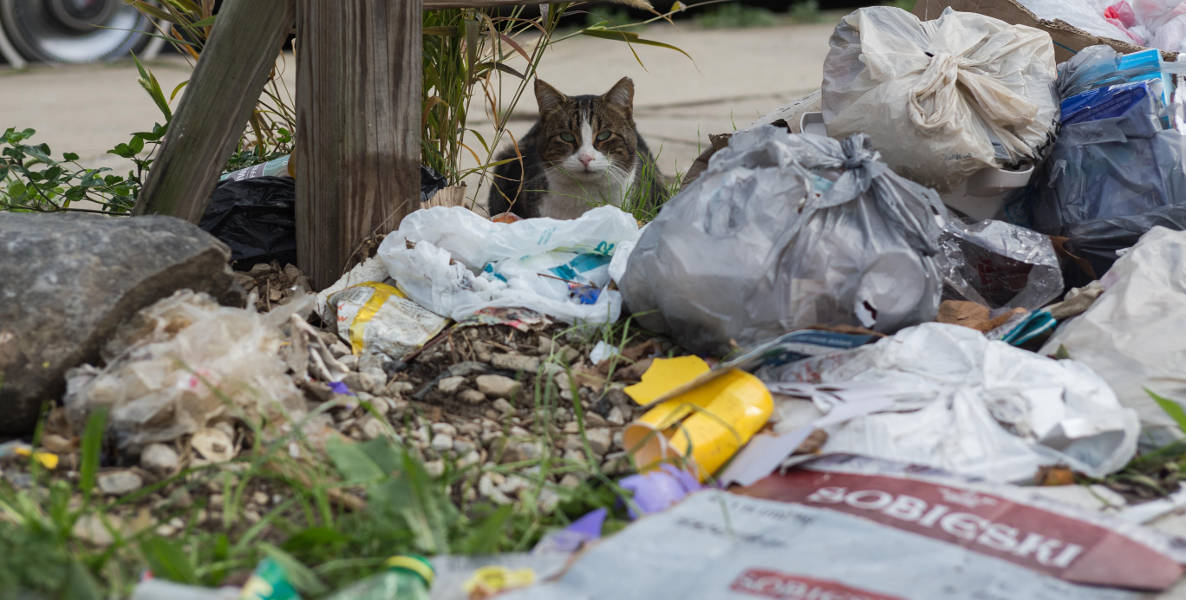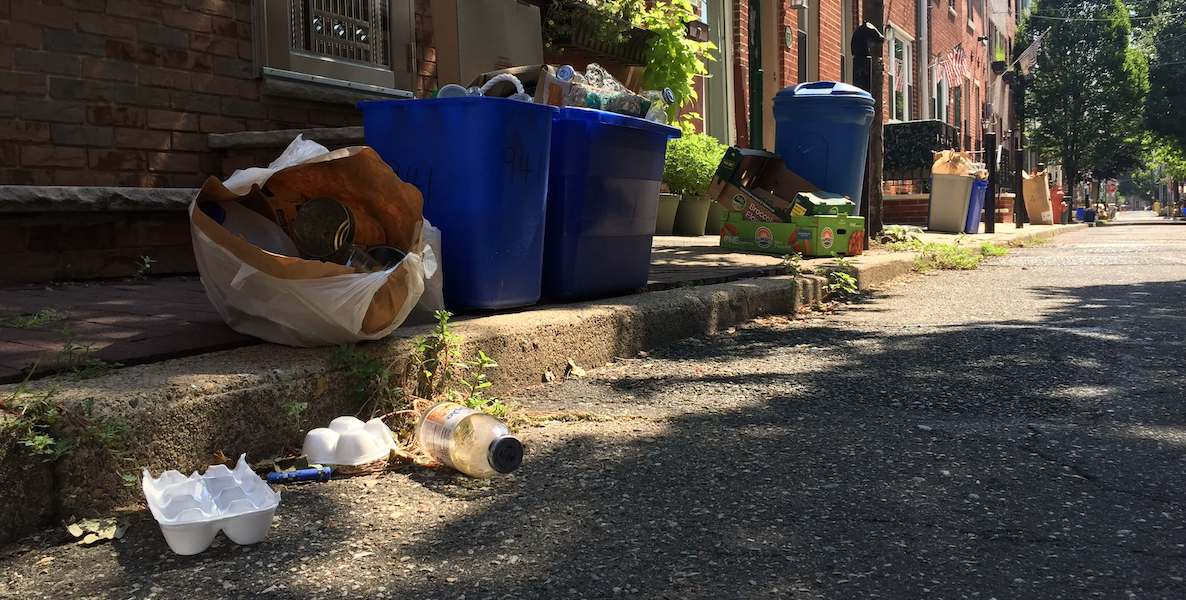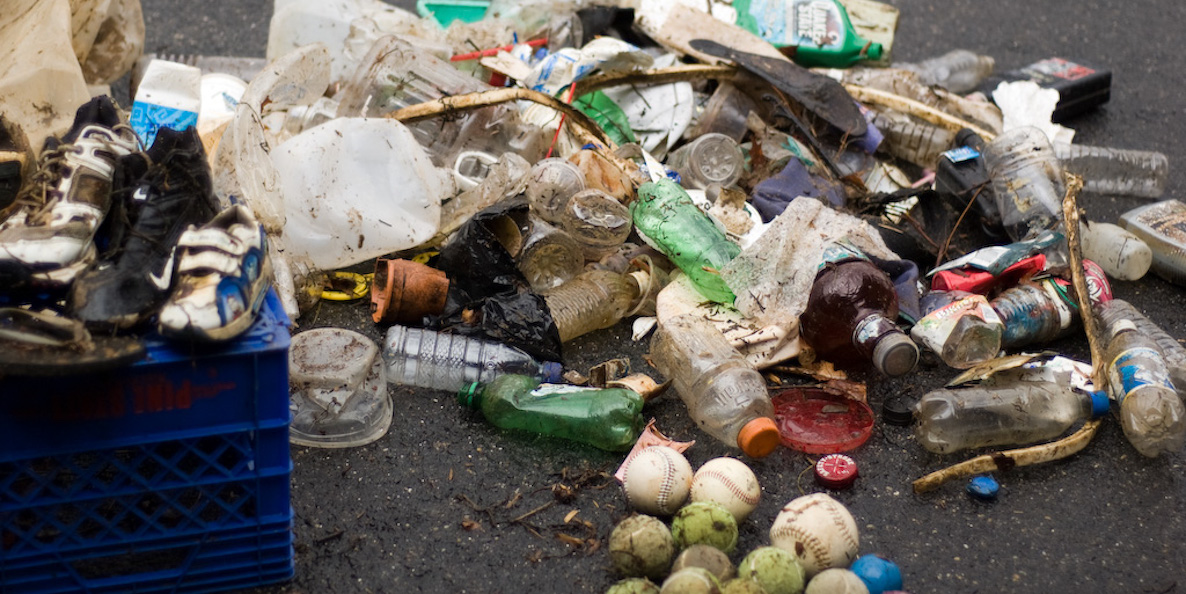Most days, State Representative Jared Solomon heads to work in a suit and tie. But on the morning of August 18, Northeast Philly’s homegrown legislator made sure to don the oldest clothes he could find, ones he wouldn’t mind trashing if necessary.
![]() That’s because Solomon was headed to spend an entire work day with a city sanitation crew, to get a first-hand look at what the beleaguered teams are up against as they attempted to make a dent in the pile-up of garbage his office has been hearing about since the start of the pandemic.
That’s because Solomon was headed to spend an entire work day with a city sanitation crew, to get a first-hand look at what the beleaguered teams are up against as they attempted to make a dent in the pile-up of garbage his office has been hearing about since the start of the pandemic.
“We were getting bombarded with calls,” Solomon says. “My trash hasn’t been picked up! There are rats on my street, how can you help? The smell is unbearable! Instead of complaining about it, I wanted to do my part.”
He reached out to the head of the Streets Department, Carlton Williams, and asked to go out with a crew in his own neighborhood. Then, he reached out to Terrill Haigler, the Philly sanitation worker-turned-Instagram-hero. Better known by his IG name, @yafavtrashman, Haigler has amassed more than 21,000 followers through his real-time posts about how Philadelphians are, well, screwing up their trash pickups—and how we can all do better.
Haigler, propelled to national prominence with his appearances on ABC’s World News Tonight With David Muir, successfully raised more than $30,000 to buy PPE for his fellow sanitation workers, and he has more big plans in the works (to be revealed later this month; follow his IG for an announcement on October 15th).
“I follow @yafavtrashman because Terrill is doing a great service by getting the message out to his followers,” Solomon says. He wanted Haigler’s advice on what to do and expect-—it was Haigler who advised him to find the junkiest clothes he could.
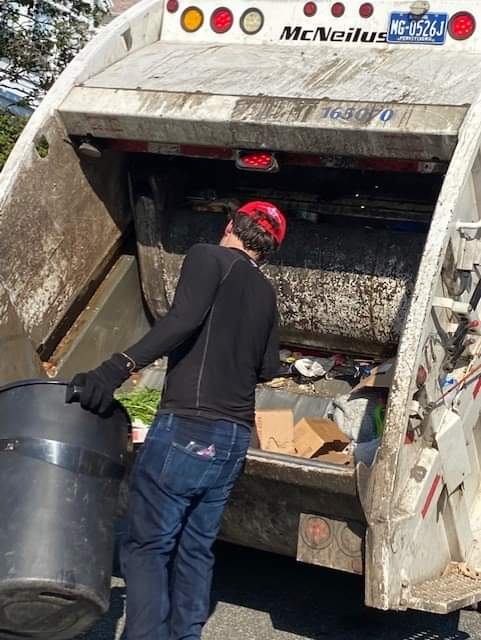
“Throwing trash is not for everybody. It’s a different type of work that you don’t know you can do until you do it,” Haigler says. “People laugh at me when I say it, but there’s actually a technique to throwing trash. You gotta know what type of bag you have; if you pick up a bag and it feels like it’s about to rip, you gotta know not to drag that bag, you gotta put it in a can or call your partner. A lot of thinking really does go into the work.”
Of course, when Solomon arrived for work, his crew was understandably skeptical.
“They assumed I’d throw two bags of trash and skedaddle once I saw the ‘trash juice’ spitting out of the truck,” he concedes. But Solomon stuck it out, helping to haul 19.3 tons of trash off the streets. (Haigler explains that crews are expected to retrieve a daily minimum of 16 tons, and seven tons of recycling.)
Solomon gained a new appreciation for the demands of the profession that day. “I came to better appreciate how strenuous it really is and also the hazards on the job,” he says. Glass, IV drips, torn bags and soiled diapers—his crew dealt with all of it. “My team was consummate professionals. They picked up everything, they knew the neighbors, they knew who was a senior and they would make sure not only pick up the trash can, but then put it behind the senior’s fence. They’re really, really great guys who took such pride in their job and were instructing me.”
Through his day-in-the-life experience and from his ongoing conversations with Haigler and others since then, Solomon came away with some smart ideas on how we can do it better. It turns out that other cities, from New York to Seattle, have at least started to figure this out—and we can too.
Here, some places we could start:
Invite more people into the conversation.
Solomon believes a critical piece of solving the problem is bringing people together to hear new viewpoints. “First and foremost, the most critical turn is just listening to the people who do the job,” he says.
![]() He wants to see a convening of citizens, stakeholders, leaders, to help expand our circle of ideas. “We need a reset in how we do trash removal,” he says. “You have to embrace good thinkers, you have to go to policy think tanks and get folks who are committed to this. Then some of those ideas could be implemented into new ways that we deal with the trash that plagues our city every day.”
He wants to see a convening of citizens, stakeholders, leaders, to help expand our circle of ideas. “We need a reset in how we do trash removal,” he says. “You have to embrace good thinkers, you have to go to policy think tanks and get folks who are committed to this. Then some of those ideas could be implemented into new ways that we deal with the trash that plagues our city every day.”
Haigler loves the idea of a public forum (he offered to emcee it, if someone wants to make it a reality).
“If we do it, you should invite the department heads, some laborers, and the public, and the mayor should be there too. We could have an open forum on what we can do for the 2021 year to avoid another trash pandemic,” he says.
Merge trash with economic development.
Back in the ‘90s in New York City, then-Mayor David Dinkins launched a green development initiative, merging sanitation with economic development. The idea was to create processing facilities for different waste streams, and produce economic benefits by doing value-added processing, explains Robert W Balder, Executive Director of Cornell University’’s School of Architecture, Art, and Planning’s programs in New York City. Balder had been director of the Mayor’s Office of Lower Manhattan Development, and he worked on the initiatives as executive vice president of the New York City Economic Development Corporation.
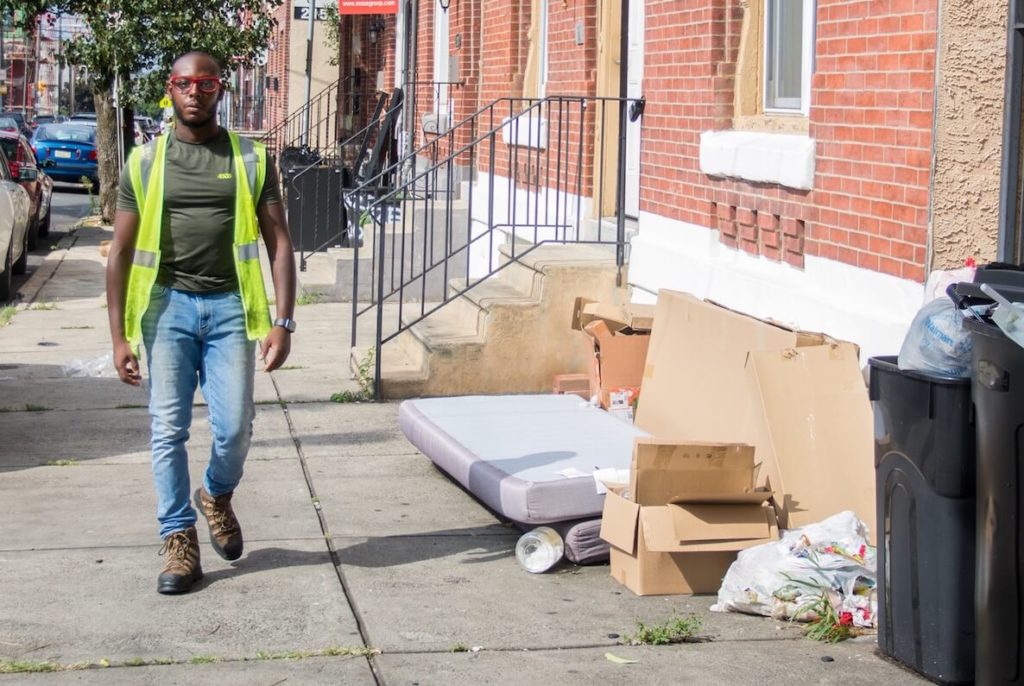
The city met with dozens of companies, looking for those that could divert things from landfills, and actually do something of value with them, he explains. One of the primary products they strove to get out of landfills: paper. The company they were most impressed by was Australia-based Pratt Industries, whose local subsidiary is called Visy Paper; after lots of community convincing, Pratt ultimately built one of the world’s largest waste-paper recycling facilities in Staten Island, with the city using triple-tax-exempt bonds to be able to finance it through federal tax laws. It’s a huge production facility that makes corrugated paper and, says Balder, the output is extraordinary.
“Pratt/Visy was unique in the sense that they had a really driven business plan to really find a way to get into major U.S. markets. And they developed the technology to be able to clean and be able to produce high-quality, high-strength paper,” Balder says.
Where most of the U.S. companies the city met with walked away, saying “the stuff’s too dirty” or they didn’t want to deal with the bureaucracy of New York City, Pratt had a fearless business plan, and was committed to being competitive. Now, the facility, which runs 24/7, takes close to half a million tons of paper from New York City every year.
Build a state-of-the-art recovery facility.
In addition to the paper recovery facility in Staten Island, New York also has a massive material recovery facility, which is something Balder says every city needs. “This is where all the sorting happens, where you can actually produce commodities that can go to different markets. You can also contain some of the environmental aspects of making sure you’re handling it as cleanly as you can,” he explains.
New York City hired a company called Sims, which has a state-of-the-art facility on the Brooklyn waterfront. “It’s like the poster child for recycling education,” Balder says. They have an immense amount of automated equipment which, Balder says, is critical if you’re going to do any volume. “And Philadelphia, like New York City, has volume, density, and all the rest for sure.”
Empower neighbors.
A Haigler proposal Solomon particularly loves: Designate a “trash ambassador” in every four- to five-block community to work with Sanitation, spearheading initiatives like once-a-month Saturday pickups for large household items. “It’s gonna help bring the neighborhood together, while removing tonnage during the week. That would really help alleviate a lot of the burden from the weekly trash removal,” Solomon insists.
He thinks we should start small, with a pilot—and he’d be psyched for his neighborhood to be the test-run. “See if you could implement a clean streets initiative in a smaller area—get a win, we need a win—and then take that and expand the program.”
Use our rivers.
Part of New York City’s green initiative also involved introducing large paper barges to transport paper along the city’s rivers, from pickup points to the recycling center in Staten Island—thus keeping trash and the trucks that carry it out of already-congested streets.
Philly has rivers, and real estate for recycling facilities (and the jobs they create) too. “Philly still has industrial sites and buildings that can be repurposed,” Balder affirms. “I’m a big believer that we’ve kind of turned our backs on [rivers], and it’s time to go reclaim them.”
Get political buy-in.
Balder says that the successes in New York City didn’t happen overnight; they were multi-year efforts, and what ultimately moved the initiatives forward was political buy-in.
“If people would follow some of my tips, or all of my tips, on putting out their trash, I know it’s not an overnight process, but if we started there, then a lot of the other initiatives that we want to do will become second nature,” says Haigler.
“Having the political will behind it to really make these things happen is vital. We couldn’t have done any of this if we didn’t finally get some local elected officials to step up,” he says. “It’s just kind of a natural knee-jerk community-based reaction to say I don’t want it here, this is not going to do anything for me. We took the approach that we’re going to find a home for this, and it’s going to create some jobs, it’s going to create really significant investment, and the bottom line for me was this is critical infrastructure that we all have to have,” he says.
He compares it to any other essential city service. “This is no different than waste-water treatment or handling your utility infrastructure: We have to build a different culture than landfills and just carting and trucking stuff off to other states. It’s gotta be solved locally, at home.”
Embrace automation.
Haigler admires Seattle’s commitment to sanitation for a handful of reasons. Chief among them: The city’s use of trucks with automated “arms” that lift and dump residents’ (city-issued) roll carts.
“The standard carts used for collection can be mechanically emptied into the truck, meaning that the drivers do not need to ‘throw trash,’” explains Sabrina Register, public information officer for the City of Seattle.
Empower sanitation workers.
Haigler also envies the authority Seattle workers are given. Drivers, who are employed directly by Waste Management and Recology through Seattle’s Collection Contracts, do not give citations—but they are trained to leave “OOPS” tags for residential customers who may need educational reminders about how to set out and sort garbage, recycle, and food waste carts.
“The idea that we could put a man on the moon but we can’t clean up Philadelphia just doesn’t make sense,” Solomon says. “Of course we can do it. We just need the will and resolve to get it done.”
Register explains: “Seattle’s Solid Waste Inspectors rarely apply the fees allowed under municipal code to customer accounts. Rather, Inspectors call customers to verify driver-reported concerns, provide education, and identify a resolution. Letters are also mailed to customers when an inspector has verified multiple repeat issues such as contamination of recyclables or food waste with garbage. Inspectors also visit customers when necessary.”
Follow @YaFavTrashman on Instagram.
When Haigler’s not bringing practical policy ideas to the attention of legislators like Solomon, he’s using his Instagram as a vehicle to offer advice on effective trash management, and uplifting the community through initiatives like the PPE fundraiser.
![]() This weekend, he’s hosting a food drive for front line workers: On October 9th, his church, Voice of Praise Worldwide Ministries, will accept food donations from 1pm to 6pm at 3509 Old York Road; on the 10th, they’ll distribute items to frontline workers from 11am to 3pm, and to anyone else thereafter, until all food is gone. He’s racked up sponsorships from T-Mobile, GoPuff, Philly Foodworks, and more. And stay tuned for big news on October 15th, when Haigler will be announcing his next big initiative.
This weekend, he’s hosting a food drive for front line workers: On October 9th, his church, Voice of Praise Worldwide Ministries, will accept food donations from 1pm to 6pm at 3509 Old York Road; on the 10th, they’ll distribute items to frontline workers from 11am to 3pm, and to anyone else thereafter, until all food is gone. He’s racked up sponsorships from T-Mobile, GoPuff, Philly Foodworks, and more. And stay tuned for big news on October 15th, when Haigler will be announcing his next big initiative.
“The biggest thing for me is how people put their trash out,” he says. “If people would follow some of my tips, or all of my tips, on putting out their trash—tying up wood, breaking down boxes, drilling holes in the can for when it rains or putting a lid on the can, bringing the cardboard in when it rains so that it doesn’t get heavy and soggy and all messy…I have a whole list of tips—I know it’s not an overnight process, but if we started there, then a lot of the other initiatives that we want to do will become second nature.”
Dump the chip on our shoulder.
We don’t have to be, well, gross, and accept that we’re simply a dirty city. “I want people to realize that we can become a clean city. We don’t have to have this sort of shared helplessness, where we don’t feel like we have control over the trash on our streets and our business corridors or in and around our neighborhood,” Solomon insists. “The idea that we could put a man on the moon but we can’t clean up Philadelphia just doesn’t make sense. Of course we can do it. We just need the will and resolve to get it done.”



